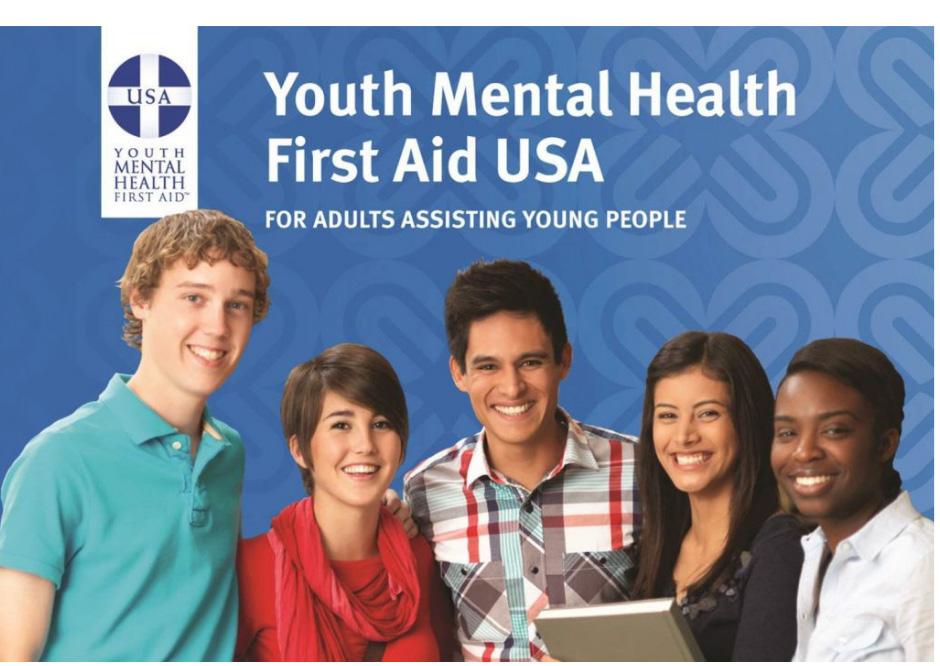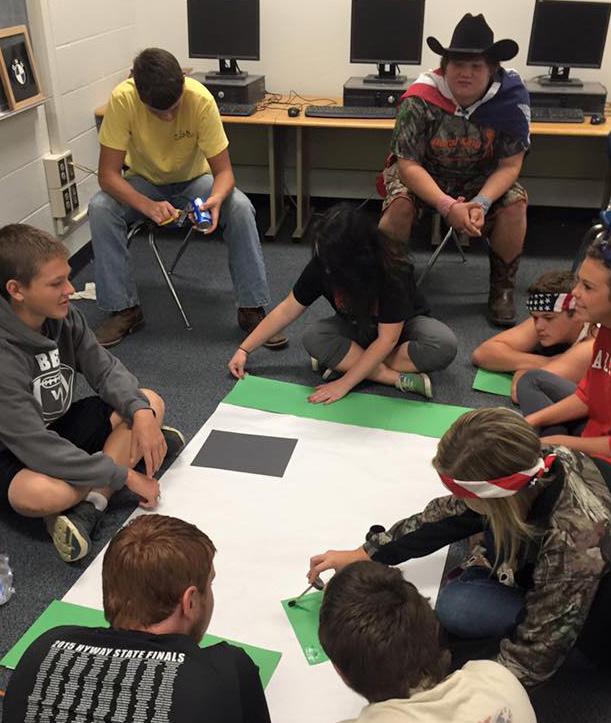
5 minute read
Mental Health First Aid
What will participants learn? Participants will learn risk factors and warning signs for mental health challenges common among adolescents. There will be a focus on strategies to support youth developing signs and symptoms of mental illness or an emotional crisis.
Mental Health First-Aid training is coming to Delaware County. Here’s what educators need to know about this opportunity.
Advertisement
Who should participate? This course is designed for adults who regularly interact with young people. Teachers, school staff and coaches could all benefit from Mental Health First-Aid training. This specific pilot training is open for teachers at all grade levels.
Why now? In the wake of the COVID-19 pandemic, more students may be at risk for developing the anxieties, depression and disruptive behaviors that Mental Health First-Aid is desgned to address. This is a tool that school faculty and staff can use to ease the transition back into the classroom for the 2020-2021 school year.
FIRST-AID MENTAL HEALTH
In Indiana, teachers are required to be certified in CPR. The reason is clear. In an emergency where a student’s life is at stake, there must be an adult present who can step in at a moment’s notice and give life-saving aid to a young person in need. While most may know what to do when someone is choking or having a heart attack, many do not know how to respond when someone is having a panic attack or showing signs of emotional abuse. That is changing in Delaware County thanks to funding from the Community Foundation and Ball Brothers Foundation, training from Meridian Health Services, and collaborations with Delaware County schools,
GETTINGON BOARD
Project Leadership, and the Delaware County Comprehensive Counseling Coalition. A pilot program launching this fall will train 175 educators and staff to equip school personnel with the tools and skills to support youths in their mental health and manage the potential effects of the COVID-19 pandemic.
“COVID creates a lot more uncertainty and anxiety with kids,” says Carrie Schad, Director of Children’s Services for Meridian Health Services, which is facilitating learning sessions with certified trainers. “We’re seeing issues with depression and anxiety at an earlier age.”
The evidence-based training program being used in Delaware County is called Youth Mental Health First Aid. Its purpose is not to diagnose mental illness or provide therapy but rather teach educators about the signs and symptoms of mental illness or emotional crisis. A five-step action plan includes assessing the risk for harm, listening, providing reassurance, encouraging professional help, and encouraging selfhelp strategies. The expectation of the training is not about turning educators into mental health professionals but rather providing educators with additional information and strategies for their classroom toolboxes, says Lori Mathis, Director of Community Health at Meridian Health Services.
“Unfortunately, some youths are in unstable home environments experiencing additional trauma,” Mathis says. “The more we can prepare our educators to recognize those signs of trauma, the better they will be able to help the students they’re serving.”
There is an additional benefit to the training.
“It is important because we have an issue with mental health in our country, the stigma surrounding it, and the level in which it goes undiagnosed,” Mathis says. “By having more people become educated in mental health, we can identify needs, reduce stigma, and get youths the help they need faster.” The Community Foundation and Ball Brothers Foundation funding will make it possible to train at least two educators per school building in each district in Youth Mental Health First Aid.
ALGEE ACTION PLAN

ALGEE is a five-step action plan at the heart of Mental Health First-Aid.
ASSESS Assess risk for suicide or harm.
LISTEN Listen non-judgementally.
GIVE Give re-assurance & information.
ENCOURAGE Encourage self-help and other support strategies.
(CONTINUED FROM PAGE 3) “A room full of students in emotional or survival state can be completely overwhelming, especially when there will be pressure to make up for lost time academically.
The prefrontal cortex is where our brilliance, our wisdom, our problem-solving abilities live. These are the skills we want to be able to access in difficult situations that are not truly life threatening. For those of us who work with children, there is a long list of things that our brains perceive to be threatening that will send us down into protection mode fast. Things like eye rolling, whining, swearing, crying, back talk, lying, etc. The list of triggers can go on and on. What are yours? As students have returned to school, there are likely many little brains that are not operating in their executive states. Our children have experienced trauma on many different levels. A room full of students in emotional or survival state can be completely overwhelming, especially when there will be pressure to make up for lost time academically. Dr. Becky Bailey would tell us to breathe deeply and remind those lower centers of our brains that we are safe, and that we can handle this. Nancy Green would tell us to breathe deeply and ask ourselves, “How do I want to be?” When we start to understand what is happening in our own brain, it helps us become attuned to what is happening in the brains of our students, which is powerful. Those behaviors that are triggering you are clues that are telling you what is happening in their brains. If our brains are too busy helping us survive each perceived threat, then we will miss precious moments of opportunity when we can be connecting with students and literally changing and healing their brains. Our ability to keep operating from the prefrontal cortex is key. When we are calm and composed, we can choose connection over protection. This connection can literally rewire the brain. Taking moments throughout the day to be present, look into the eyes of our students, smile, be playful, and connect with them, helps them operate from their executive state, which is where learning takes place in the brain. Our calm becomes their calm. Our ability to self-regulate becomes their ability to self-regulate. You cannot teach what you don’t know. So practice, a lot. Start noticing what is happening in your brain. The ultimate goal is for our children to be able to keep themselves composed, regardless of the stressful situation. It is possible, and it starts with us. ABOUT THE COALITION Lauren Hatch serves on the Delaware County Comprehensive Counseling Coalition. The Coalition has, for the first time ever, brought together stakeholders from around the county to focus on the social emotional learning of Delaware County students in grades K-12. School counselors, social workers and administrators gather with community partners each month to collaborate and share best practices.





